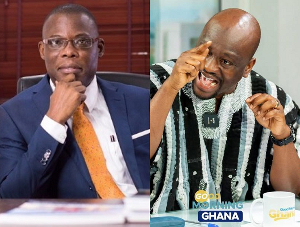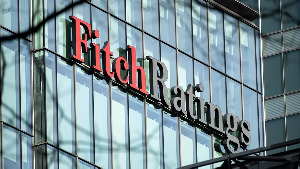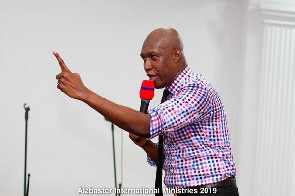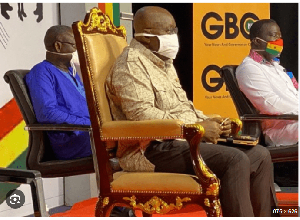If you haven’t seen the viral advert making the rounds on social media comparing statements made at a husting by the two main candidates for the National Democratic Congress’ Adenta parliamentary primaries, you might just be missing a seminal moment in Ghanaian political advertising.
In it, the two candidates, who seem to be speaking at the same event, offer their best shots to impress the gathering. Candidate Nana Oye Lithur, famed human rights advocate and former minister, offers fairly standard fare. She talks up the chances of the NDC, criticises the sitting government and offers hope for the future under a John Mahama presidency. And then there’s candidate Ramadan, former presidential staffer. He has, well, oil and rice. And to his credit, a new and more innovative way to distribute these essential commodities. Seriously, watch the video.
Oye Lithur vrs. Ramadan Campaign in Adenta
The contrast between these two candidates, as portrayed by the video, could not be starker. On the one hand, one is seeking to inspire by the base with a message of hope; the other offers rice. One hopes to get the voters to the booth by reminding them of perceived injustices under the ruling government; the other has oil. One has clearly thought of some form of vision will animate her candidacy and representation of the people of Adenta; the other has done some careful thinking about how to deliver the rice and oil in a most efficient manner.
Away from the sheer majesty of the advert, there is a larger point relevant to all of Ghanaian politics. Clearly, the rumours of monetisation of our politics have not been exaggerated. In living colour, we have a real, flesh and blood candidate appearing to do little else but literally oil his way into the hearts of voters. The calm confidence with which he does it suggests that he does not see it to be anything but the norm. His reliance on the “strategy” suggests that he knows it to be effective. He has been victorious in a primary before and as the man said, you don’t change a winning formula.
It is one of the enduring jokes in Ghanaian politics that primary season is the “cocoa” season for delegates of both major parties. Candidates who seek their mandate to contest elections on the parties’ tickets come bearing gifts and envelopes. So well-worn is this path that savvy citizens see the power given to registered members or executives of political parties as merely a bargaining chip for some extra, tax free income. Ambitious politicians must also respond – you have to pay to be in play. And somewhere in the background, we all mourn the rise of corruption in our public service.
Perhaps, we should look at the scoreboard. All of us lament the quality of our elected personnel. Inept, self-serving and lacking genuine commitment to our country are some of the ways in which we would describe an alarming bulk of them. But how did they get there? We voted for them. Some of which were on the ballot merely because they had the capacity to deliver the right amounts of oil and rice. As we survey the poor infrastructure and social services in our communities; the lack of job or job opportunities for young people; and the disconnection of elected officials from regular people, we should spend a moment to remember how we get the elected officials we are saddled with. We are not sending our best people.
Again, this monetisation interferes with and compromises an essential principle at the core of elective politics. Candidates offer a vision that we vote on in the expectation that they would pursue that specific vision with the mandate from our thumbs. Where that sacred bond is bridged by money and other material gifts, a fatal blow is dealt. Instead of electing servants, we end up with investors who having spent large sums to buy (because that is what it is) our votes and conscience, must now find ways to recoup the principal and adequate returns on that investment. If you are worried about corruption in high places, you have to ask yourself how the people in those places got there.
As primary season rolls into view, many of these entrepreneurs will be out there, seeking not so much as chance to serve as to invest. They will come round with their forty pieces of silver, looking for opportunities to corrupt the very soul of our democratic culture. Whether or not you’re a delegate, we owe it to our country to call out those who would ruin our country for their personal gain; to ensure that we elect a servant class rather than a profiteering one.
Over in Agogo recently, the sitting Member of Parliament, aware of the coming season, sought to deliver a down payment on the votes he had an eye on. Sadly for him, he and his items were rejected by a crowd that had learnt from his neglect that he saw them as little more than useful thumbs to be procured on an as and when basis. This message must be replicated around the country. Whatever else the other merits of the competing candidates in Adenta, the voters must send a firm and decisive message to the Ricemaster: times have changed.
Opinions of Wednesday, 24 July 2019
Columnist: Nana Yaa Roberts















